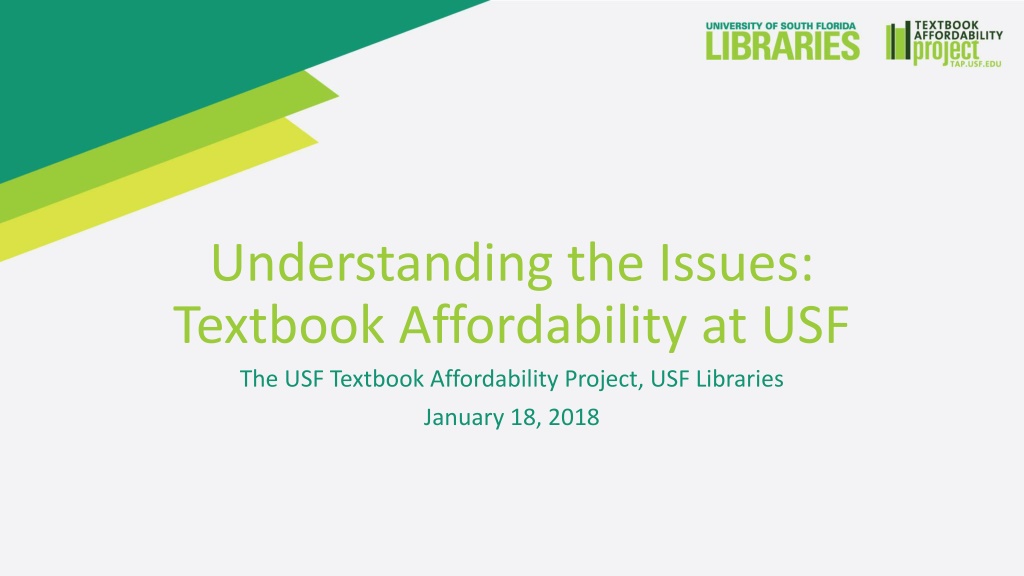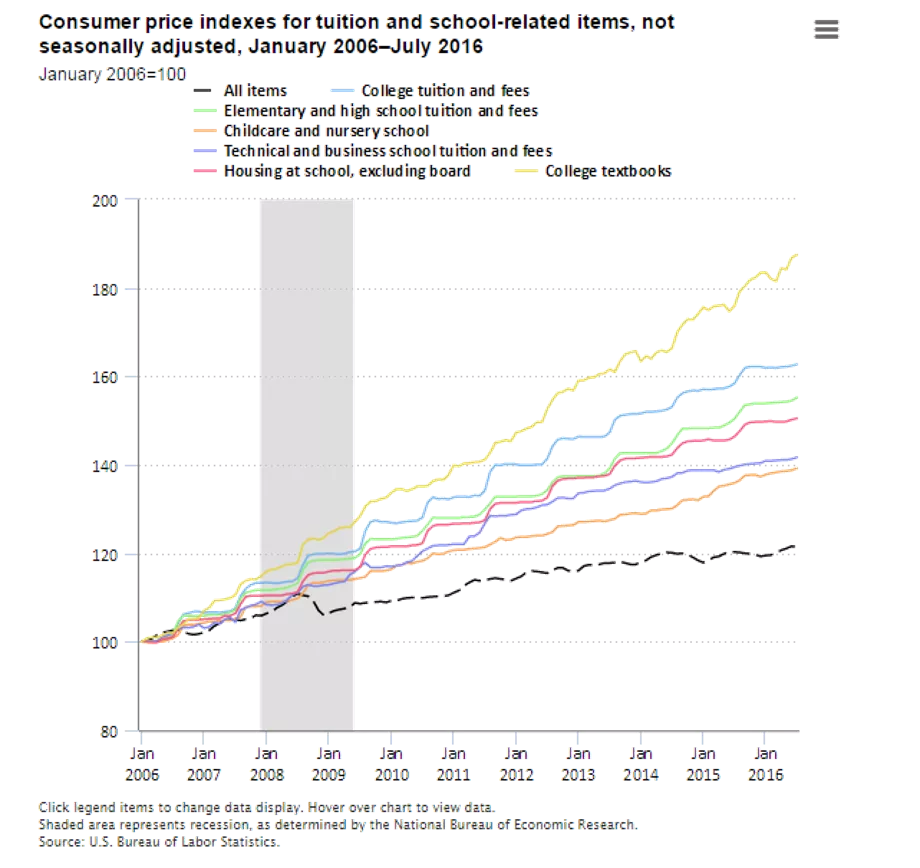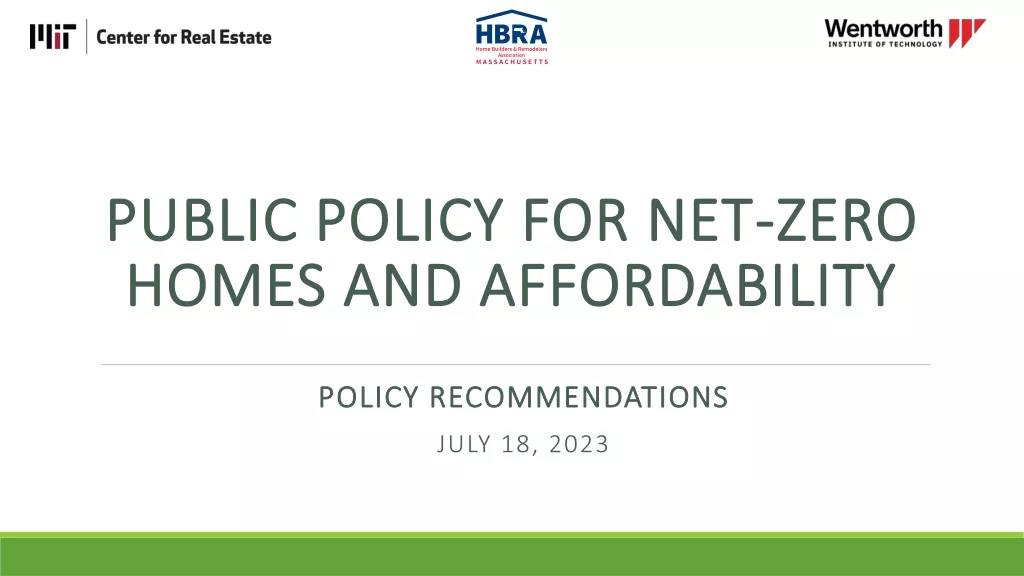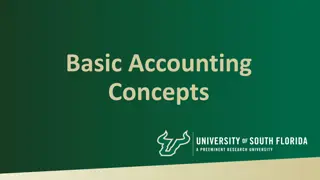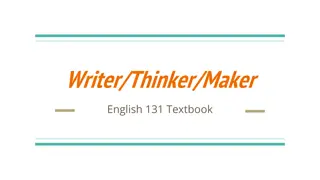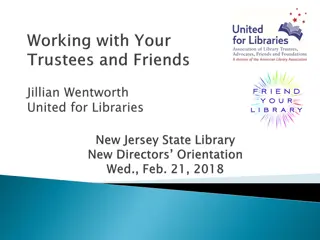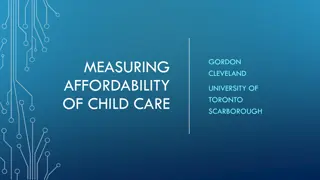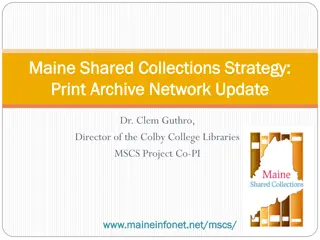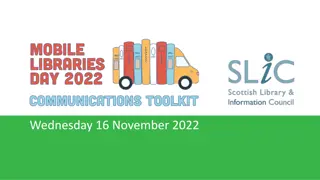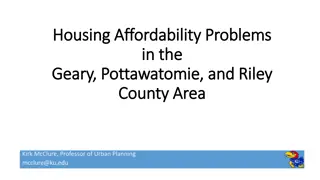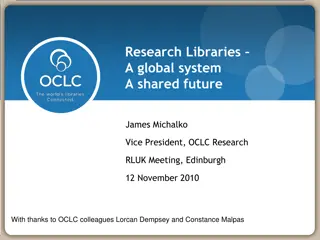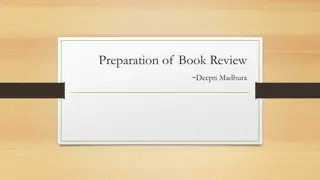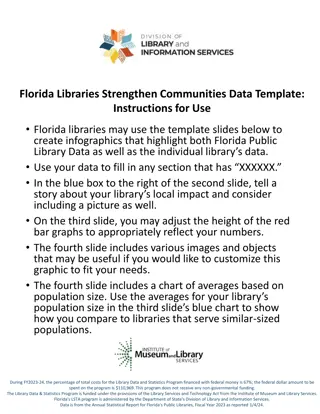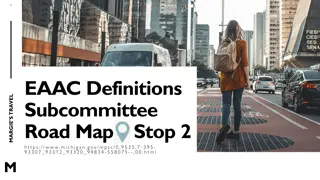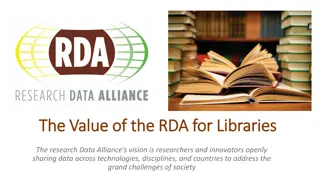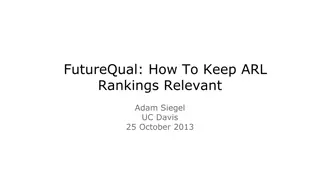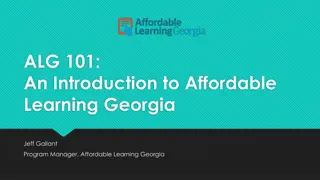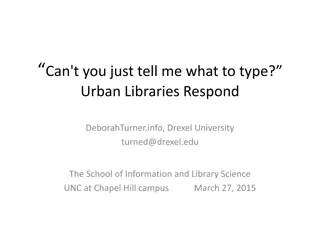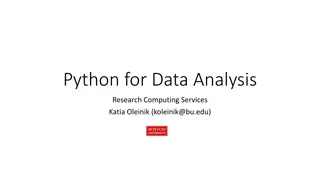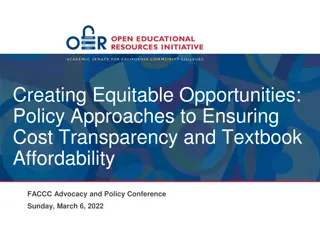Textbook Affordability Study at USF Libraries
The USF Textbook Affordability Project at USF Libraries aims to explore issues surrounding textbook costs. This study, conducted on January 18, 2018, sheds light on the challenges students face in accessing affordable course materials, offering valuable insights for educators and policymakers alike.
Download Presentation

Please find below an Image/Link to download the presentation.
The content on the website is provided AS IS for your information and personal use only. It may not be sold, licensed, or shared on other websites without obtaining consent from the author. Download presentation by click this link. If you encounter any issues during the download, it is possible that the publisher has removed the file from their server.
E N D
Presentation Transcript
Understanding the Issues: Textbook Affordability at USF The USF Textbook Affordability Project, USF Libraries January 18, 2018
The Textbook Market From 1977 to 2015, textbook prices have risen 3x the rate of inflation 1041% increase Source: Bureau of Labor Statistics (BLS)
Legislation and Regulations Specific to Textbook Affordability Higher Education Opportunities Act (HEOA) Florida Statute Section 1004.085(3) Board of Governors Regulation No. 8.003 USF System Regulation 3.029
Performance-Based Funding Related to Textbook Affordability Metric 3: Cost to Degree Metric 4: Six Year Graduation Rate Metric 5: Academic Progress Rate Retention with G.P.A. above 2.0 Metric 7: University Access Rate, Percentage of Pell Grants In 2018 Textbooks will be a separate metric with a focus on affordability
Cost of Textbooks at USF Cost of textbooks, national average per credit hour: $41 USF average per credit hour: $46
Student Textbook and Course Materials Survey 66% of students cannot purchase textbooks due to cost Source: 2016 Student Textbook and Course Materials Survey, Florida Virtual Campus
Textbook Costs: Impact on Florida Students in Higher Education Source: 2016 Student Textbook and Course Materials Survey, Florida Virtual Campus
Resources from the USF Libraries to Help You Help Your Students Textbook Affordability Project (TAP) website Ebooks for the Classroom+ Open access textbooks - scholarcommons.usf.edu/oa_textbooks - and tap.usf.edu/faculty/open-access-textbooks Print Textbooks on Course Reserve
More Resources from the USF Libraries Open Textbook Network Launched Curriculum Builder in Organized and supported etextbook pilots with Pearson, Wiley, and soon McGraw-Hill Submitted USF Technology Fee proposal for Intellus
How Can Faculty Help? DO Consider using quality, low-to-no cost alternatives (OER, ebooks, etc.) Meet adoption compliance deadline (45 days before first day of classes) Report No Textbook Required courses to the bookstore Consider assessing textbook impact Talk to your students about the use of the textbook in your courses DON T Make late changes to adoptions posted by deadline Use ProCopy or other services the USF Libraries can help reduce costs Use Adaptive Learning Platforms unless critical to course quality 12
What Can USF do to Help? Increase faculty understanding of the issues underlying textbook affordability Market USF s Textbook Affordability Project Evaluate existing and create new practices that advance affordability Develop a framework for assessing textbook impact; listen to students about their experience with textbooks Develop incentives for faculty who drive textbook affordability Move beyond compliance and metrics to own the textbook affordability issue 13
Contact Us Laura Pascual | Electronic Resources Librarian lcpascua@usf.edu| 813.974.2483 Micah Jenkins | Coordinator Library Operations mqjenkins@usf.edu | 813.974.9449 Alex Neff | Program Planner & Analyst neffa@usf.edu | 813.974.4703 Rion Sabean | Web Content Administrator rsabean@usf.edu | 813.974.6248 14 TAP.USF.EDU
